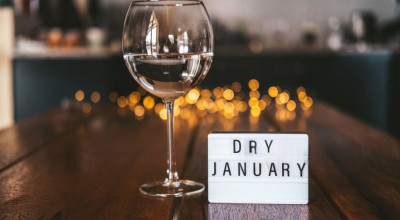The Dangers of Relying on AI for Mental Health Advice
September 19th, 2025
More people than ever are turning to the Internet and artificial intelligence (AI) tools for answers about their health, mental health, and even spiritual lives. While quick and convenient, not all advice found online is safe. The tragic death of a teen [1] who took his own life after following AI-generated advice shows just how dangerous this can be. If you or someone you know is struggling, please reach out for immediate help by calling 988 or going to your nearest emergency room.
What Is the Issue?
AI platforms and online searches put vast amounts of information at our fingertips. For many, this feels empowering — it’s anonymous, always available, and often faster than making an appointment with a professional. But when it comes to mental health, the stakes are too high to rely on unvetted guidance. While some suggestions may be accurate, others are incomplete, misleading, or even dangerous [2]. And unlike conversations with a trained professional, there’s no safeguard to ensure that advice fits a person’s unique circumstances.
Signs and Symptoms of Risky Online Advice
Using AI and Internet searches for mental health help may seem harmless at first, but the dangers show up in patterns like:
- Receiving conflicting or overly generic advice
- Finding encouragement to use harmful coping strategies
- Feeling more isolated after relying on non-human guidance
- Experiencing worsening depression or anxiety after following unsafe suggestions
- Not reaching out for professional help because “the Internet already answered”
Causes and Risk Factors
Several factors drive this growing trend. Access to professional care can be expensive or limited by geography, so people turn to AI for convenience and privacy. Cultural stigma around mental health can also make it feel easier to ask a chatbot than to talk to a counselor [3]. Teens and young adults, in particular, are at higher risk [4] — they are digital natives, often searching for answers in private, and may not yet have the judgment to separate good advice from dangerous misinformation.
Treatment Options
The safest and most effective approach for anyone struggling with mental health is working with a trained human professional. Therapies like CBT, DBT, IFS, and trauma-focused methods like EMDR provide evidence-based care that can’t be replaced by AI or search results. Medication management, peer support groups, and structured treatment programs also ensure accountability, safety, and personalized care — none of which an algorithm can offer.
Co-Occurring Concerns
People seeking answers online may also be dealing with co-occurring issues like substance use, trauma, or physical health concerns. AI doesn’t evaluate the whole picture and may suggest advice that makes one condition worse while trying to “treat” another. AI is unlikely to ask the deeper questions needed to get beneath the surface to help heal underlying causes. This lack of integration can deepen the risks for those already vulnerable.
Supporting a Loved One
If you notice someone you care about relying heavily on the Internet or AI for mental health guidance, start by approaching them gently. Encourage open conversation, validate their need for answers, and suggest safer resources — whether that’s talking to a therapist, calling 988 in a crisis, or visiting a doctor. Offer to help them find professional support and remind them that they don’t have to go through it alone.
Our Approach at Windmill Wellness Ranch
At Windmill Wellness Ranch, we understand how overwhelming it can be to sift through all the information online. That’s why our programs emphasize personalized, evidence-based care tailored to each individual. From therapies like EMDR, CBT, and DBT to family programs and group support, we provide safe, structured treatment with the guidance of trained professionals. Our alumni community offers long-term support and connection — something no AI can replicate.
Hope and Recovery Are Possible
AI may be a powerful tool, but it cannot replace human connection, empathy, and expertise. If you or someone you love is struggling, don’t settle for anonymous advice that could put you at risk. Real recovery happens in the context of safe, supportive, professional care — and with the right help, healing is always possible. At Windmill Wellness Ranch, mental health recovery is at the heart of what we do, and we’re here to walk alongside you. Call 830-223-2055 or contact us online.
References
- Hill, K. (2025). A teen was suicidal. ChatGPT was the friend he confided in. The New York Times. https://www. nytimes. com/2025/08/26/technology/chatgpt-openai-suicide. html (open in a new window).
- Rahsepar Meadi, M., Sillekens, T., Metselaar, S., van Balkom, A., Bernstein, J., & Batelaan, N. (2025). Exploring the ethical challenges of conversational AI in mental health care: scoping review. JMIR mental health, 12, e60432.
- Ahad, A. A., Sanchez-Gonzalez, M., & Junquera, P. (2023). Understanding and addressing mental health stigma across cultures for improving psychiatric care: A narrative review. Cureus, 15(5).
- Namvarpour, M. M., Brofsky, B., Medina, J., Akter, M., & Razi, A. (2025). Romance, Relief, and Regret: Teen Narratives of Chatbot Overreliance. arXiv preprint arXiv:2507.15783.
FAQs
Can AI provide safe mental health advice?
AI can provide general information, but it cannot assess personal context or guarantee safety. Professional guidance is essential.
Why do people turn to AI instead of therapists?
Convenience, privacy, and stigma often drive people to AI. However, these benefits don’t outweigh the risks of misinformation and unsafe advice.
What should I do if someone is relying on unsafe advice online?
Encourage them to talk to a professional and provide supportive alternatives. In emergencies, call 988 or go to the nearest ER.
Can AI be made safer?
Companies like ChatGPT are adding guardrails, but these measures are reactive and cannot substitute for trained human care.


